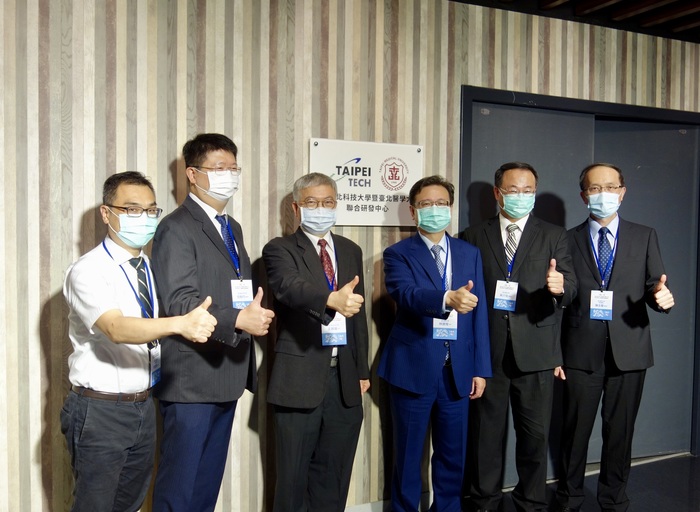Taipei Tech and Taipei Medical University Establish Joint Research Center to Advance Smart Healthcare

Taipei Tech held an unveiling ceremony on December 14th to celebrate the establishment of the new Smart Healthcare Research Center, which aims to accelerate the commercialization of high-end smart healthcare products. Guests present at the ceremony included Shih Chung-liang, Deputy Minister of Ministry of Health and Welfare; Lin Ching-hung, Deputy Secretary-General of Taiwan-Japan Relations Association; and Liang Huang-chien, Chairman of Wiltrom Medical.
Deputy Minister Shih indicated that it is crucial for the smart healthcare industry to incorporate modern technology such as the Internet of Things (IoT), wearable devices, Virtual Reality (VR), and Artificial Intelligence (AI). “To better manage smart healthcare devices, we have implemented the Medical Devices Act, and the Taiwan Food and Drug Administration has already set up the Smart Medical Device Office to provide one-stop consultation,” said Shih. “I believe that Taipei Tech’s visionary and innovative Smart Healthcare Research Center will expedite talent cultivation and effectively consolidate the smart healthcare industry chain.”
Taipei Tech’s Vice President, Yang Shih-hsuan, stated that Distinguished Professor Fang Hsu-wei, who is also the director of the Smart Healthcare Research Center, has extensive experience in the commercialization and certification of healthcare and medical products. Fang has successfully brought several high-end medical products to market, including an ultrasound therapy machine, a polysaccharide-based anti-adhesion material, a polydioxanone suture, and an electroencephalogram (EEG) system. The Smart Healthcare Research Center will focus on three main goals: using smart healthcare technology in surgery, building a database for smart medical devices and materials, and providing consultations on the commercialization of smart healthcare and medical products.
Fang indicated that when developing high-end healthcare and medical products, there is a disconnect between R&D results and a marketable product. “Through the establishment of this research center, we can provide a one-stop service that includes commercialization process planning and certification, market evaluation, and technology development,” said Feng, “our goal is to accelerate the commercialization of healthcare products and to promote key medical technology.”






